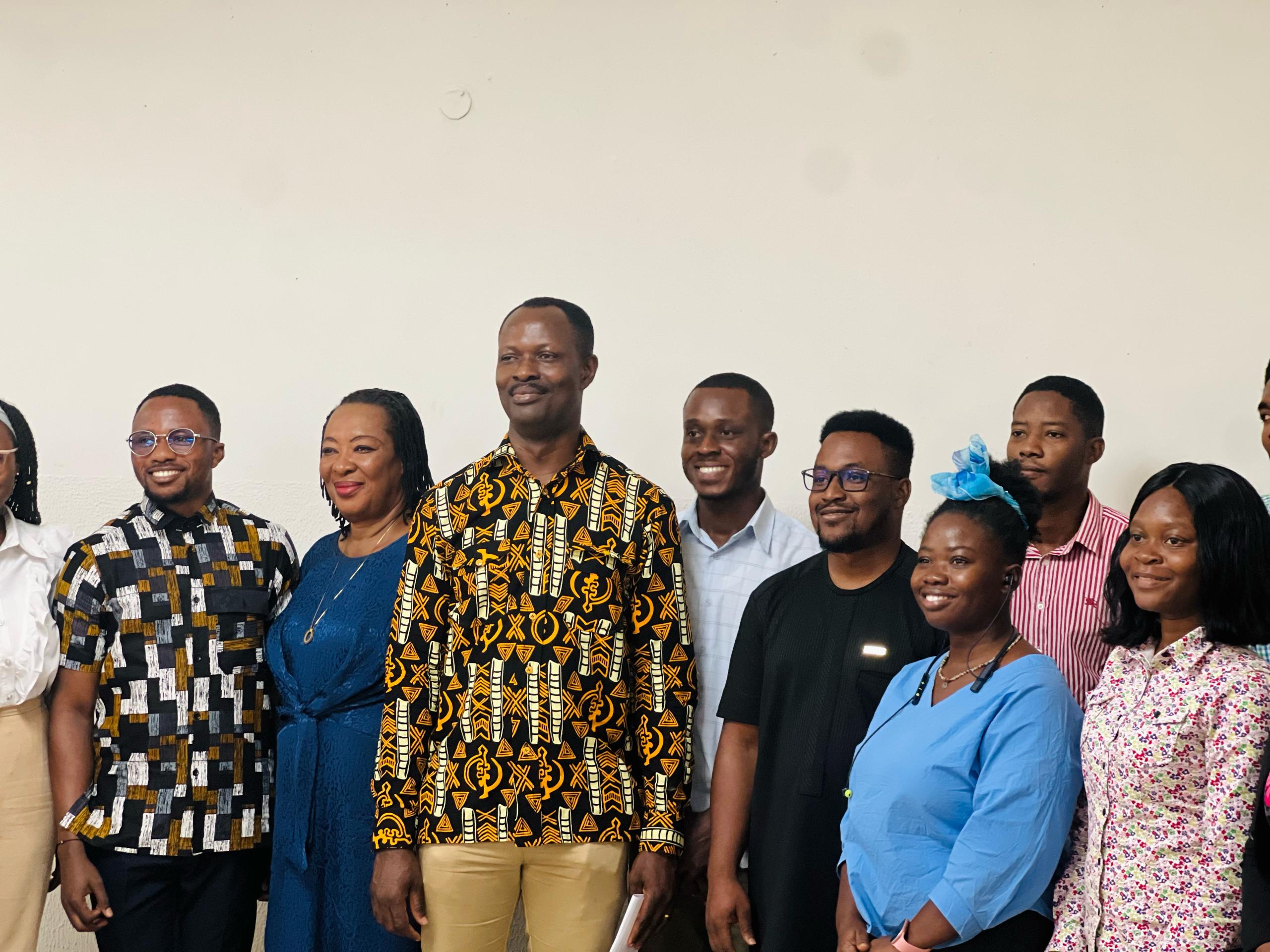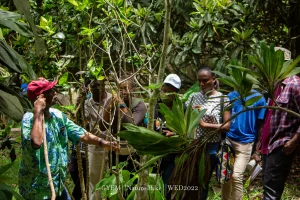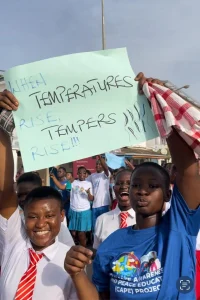On Thursday, August 21, 2025, young leaders, government officials, civil society groups, and innovators gathered at the Coconut Grove Regency Hotel, Accra, for the Ghana Youth Environmental Movement’s (GYEM) Multi-Stakeholder Roundtable on “Pathways Towards Ending Plastic Pollution.”
Building on the momentum from our Press Conference on World Environmental Day this year, this roundtable became a necessity to us at GYEM. The energy in the room was powerful. This wasn’t just another meeting, it was about building real solutions for one of Ghana’s biggest challenges, plastic waste.
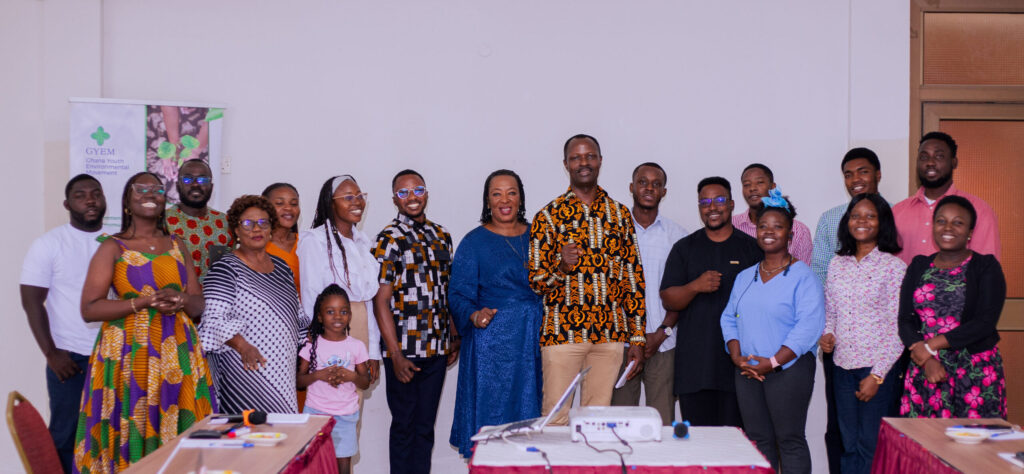
The roundtable brought together all stakeholders, including industry players, government agencies, civil society, academia, and the media. Through this non-adversarial, solutions-driven roundtable, we explored practical ways toward reducing and eventually phasing out single-use plastics in Ghana, in alignment with recent government positions while also supporting innovation, livelihoods, and economic resilience.
Key Highlights
1. Setting the Tone
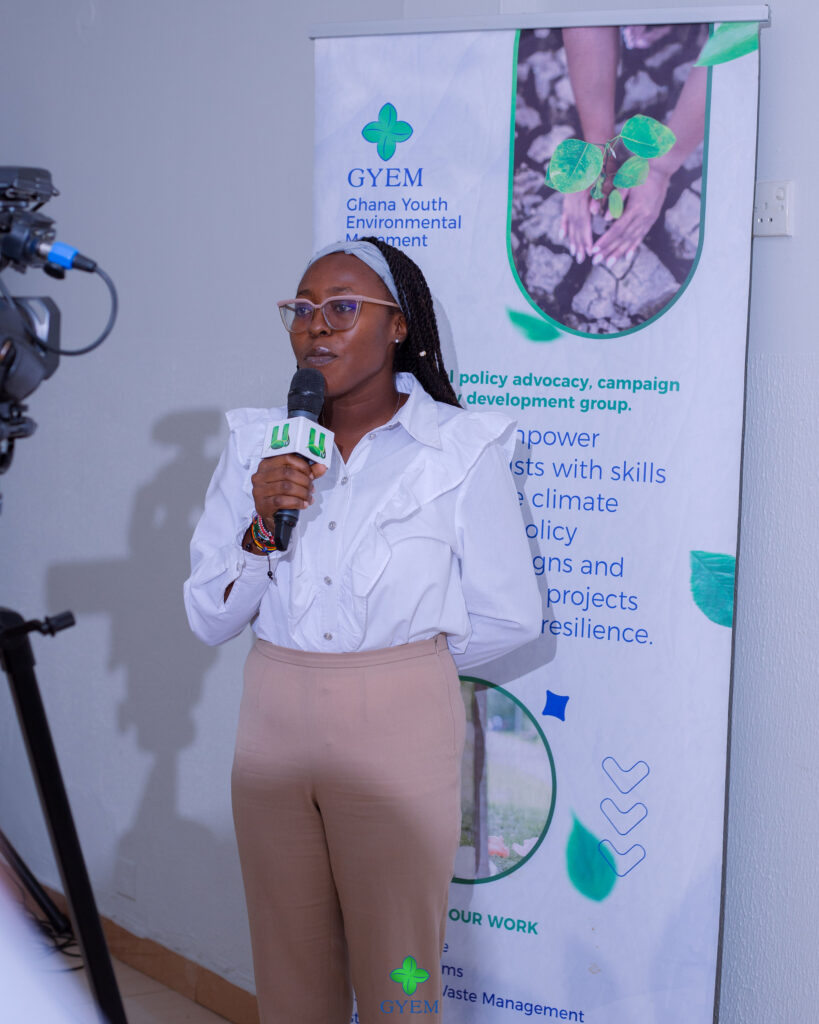
Our National Coordinator, Glory Emmanuella Appiah, opened the session with a call to action: “We are here to shape Ghana’s future by finding solutions, not excuses.”
2. Big Insights on Plastics
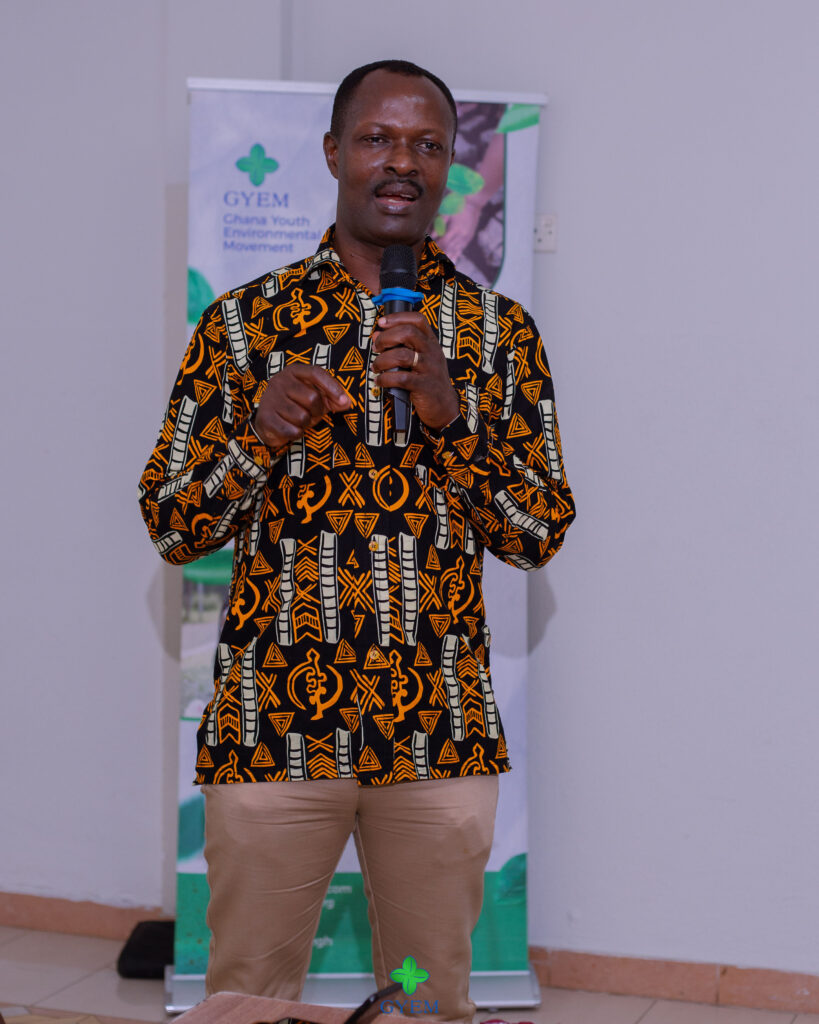
Mr. Hope Smith Lomotey, the Acting Director of Human Settlements at the Environmental Protection Authority (EPA), gave a deep dive into Ghana’s current plastic reality:
- Plastics are everywhere – some reusable, others single-use.
- By 2030, Ghana aims to phase out 50% of single-use plastics (SUPs).
- Biodegradable alternatives are the way forward.
- Stronger rules and even fees for plastic use may be enforced to cut down waste.
In his remarks, he urged market men and women to embrace sustainable alternatives, noting that while they may seem costly at first, their long-term benefits far outweigh the initial price.
3. Bold Youth Interventions
Young participants and partners didn’t hold back.
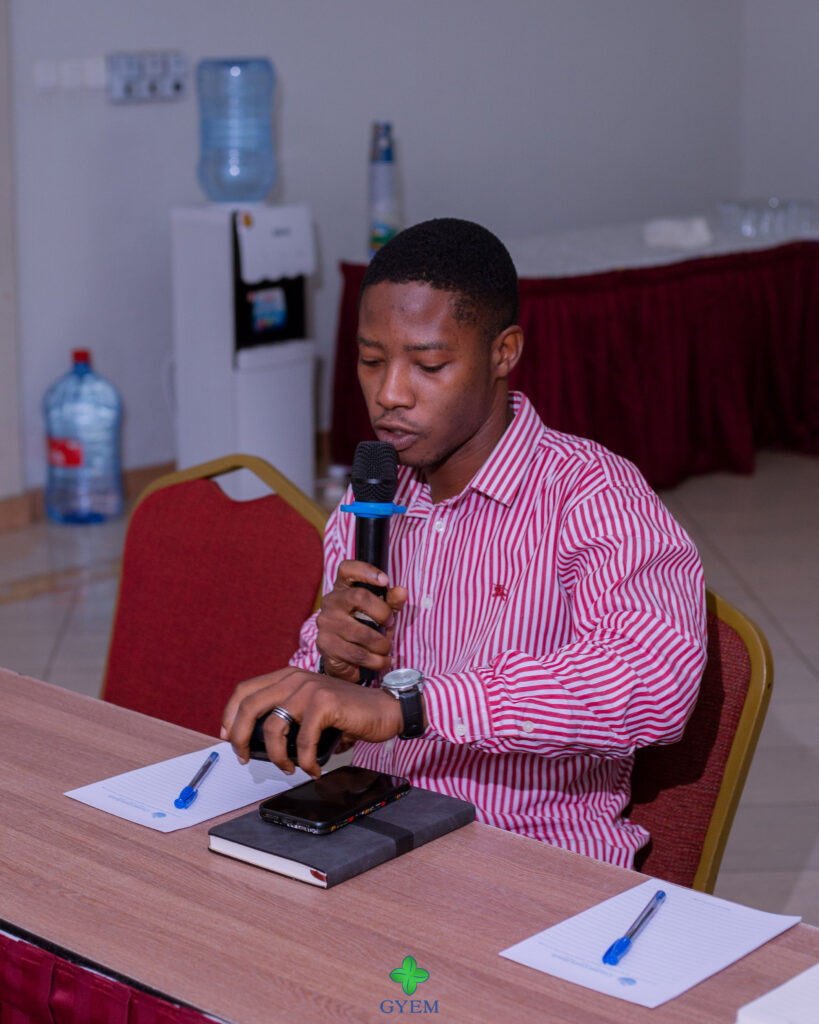
Mr. Spencer Awortwi, Project Coordinator at Plastic Punch, an NGO dedicated to combating plastic pollution, highlighted the weak enforcement of plastic laws and called for genuine accountability. He questioned the implementation of new laws given the financial power of plastic producers and called for stronger enforcement mechanisms.
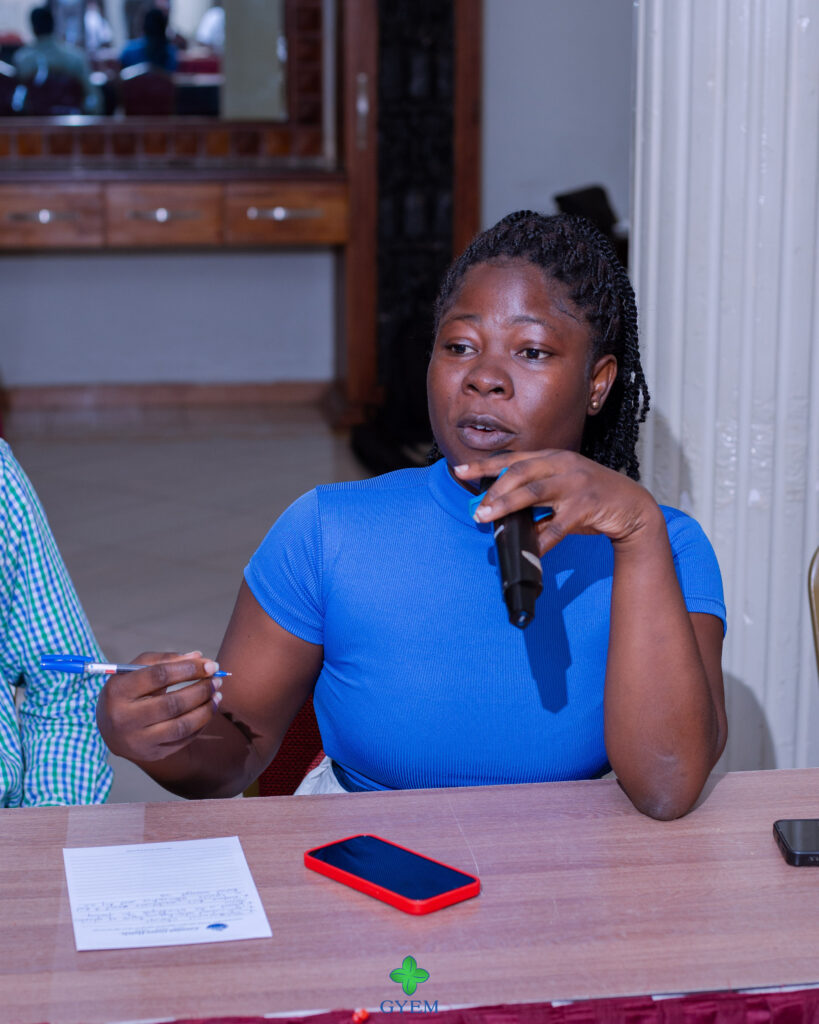
Ms. Mabel Laryea, Project Coordinator at the Green African Youth Organization (GAYO), called for taxes on plastics and bold support for alternatives like baskets and bowls.
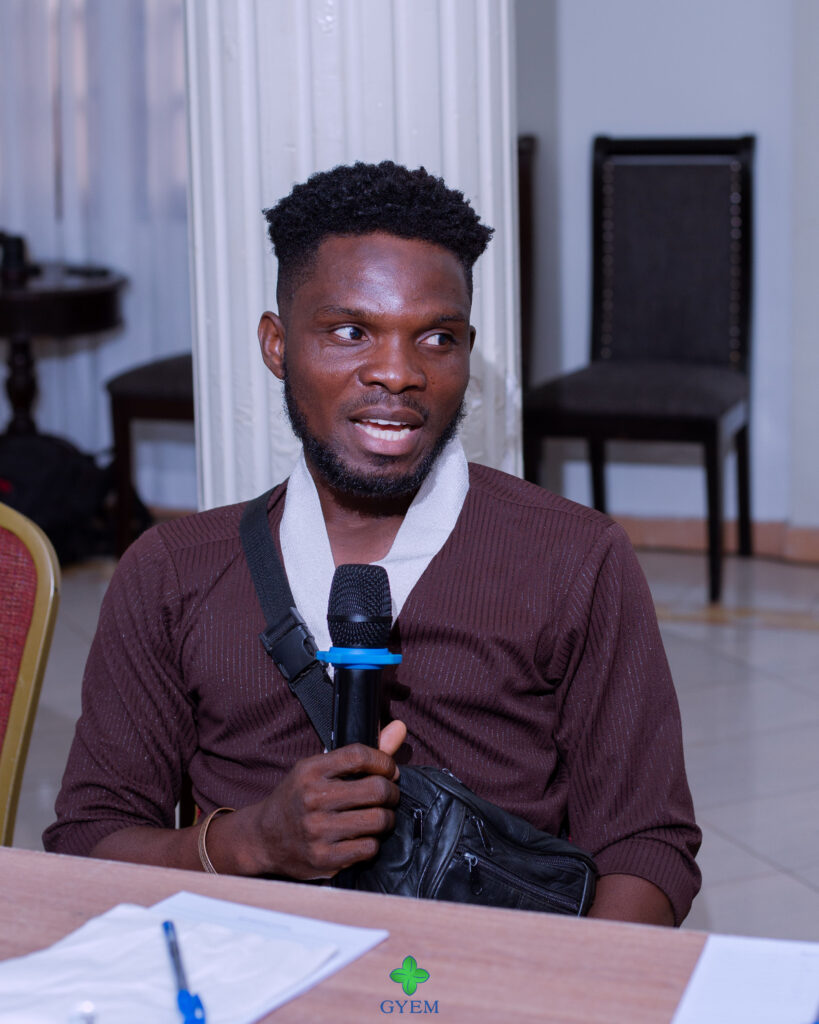
Mr. Sarfo founder and manager of BuzStopBoys, a Non-Governmental Organization that promotes Clean Green Environment (CGEn) through Patriotism Volunteerism and Selflessness, urged broad education and advocacy to engage the public effectively.
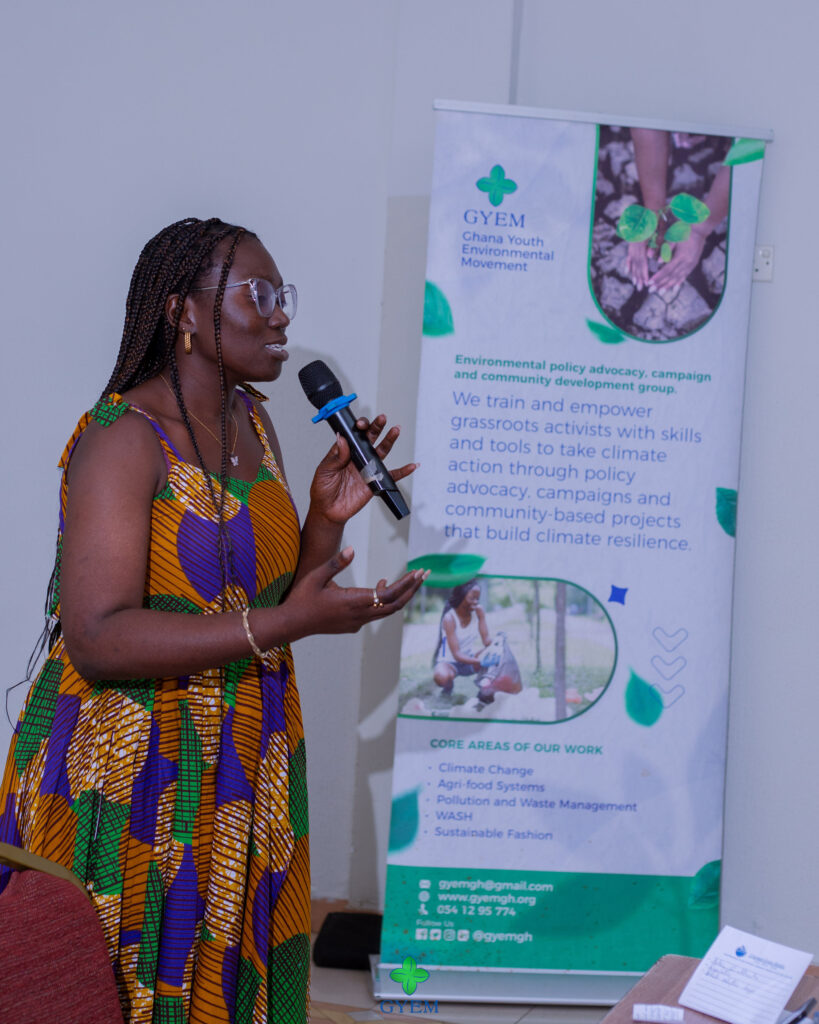
Ms. Maame Akua Yawson, Communications Manager at the Ghana National Plastic Action Partnership (NPAP), reminded us of the vital role waste collectors and informal workers play in our cities. She highlighted NPAP’s commitment to understanding the challenges faced by the hardworking waste management workers working in landfills and on the streets — and finding ways to support their work.
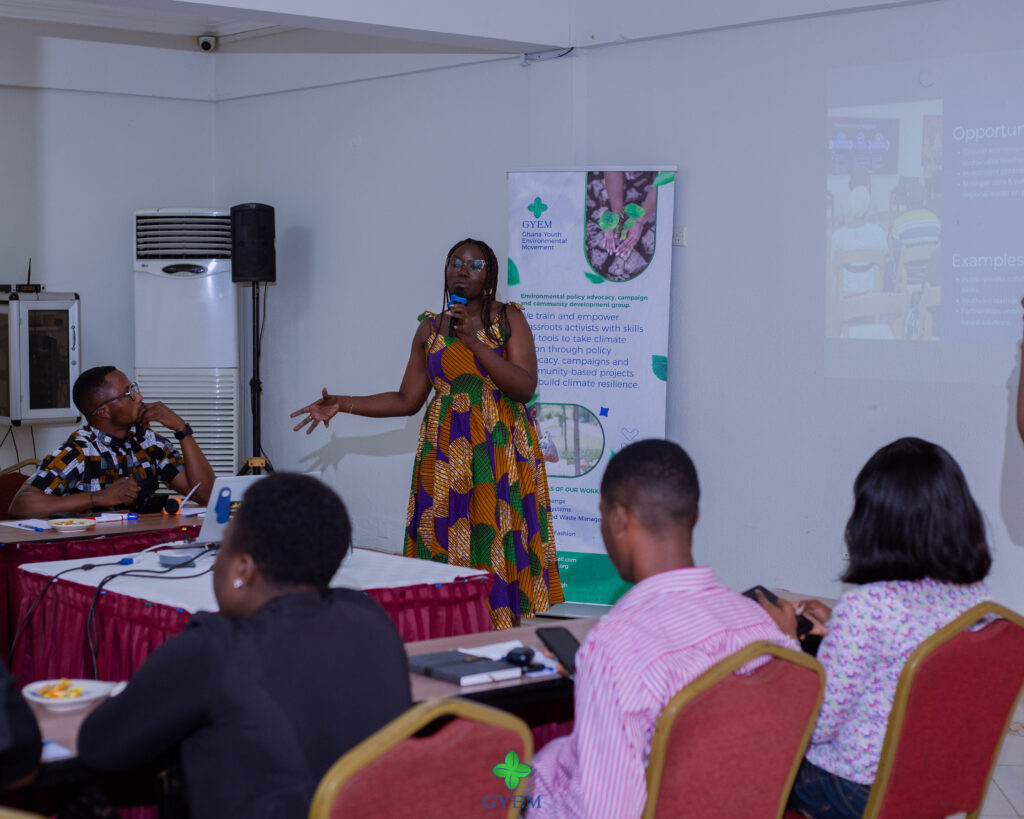
“If they don’t take care of the plastic waste we generate, our cities cannot thrive.”
4. Additional voices stressed:
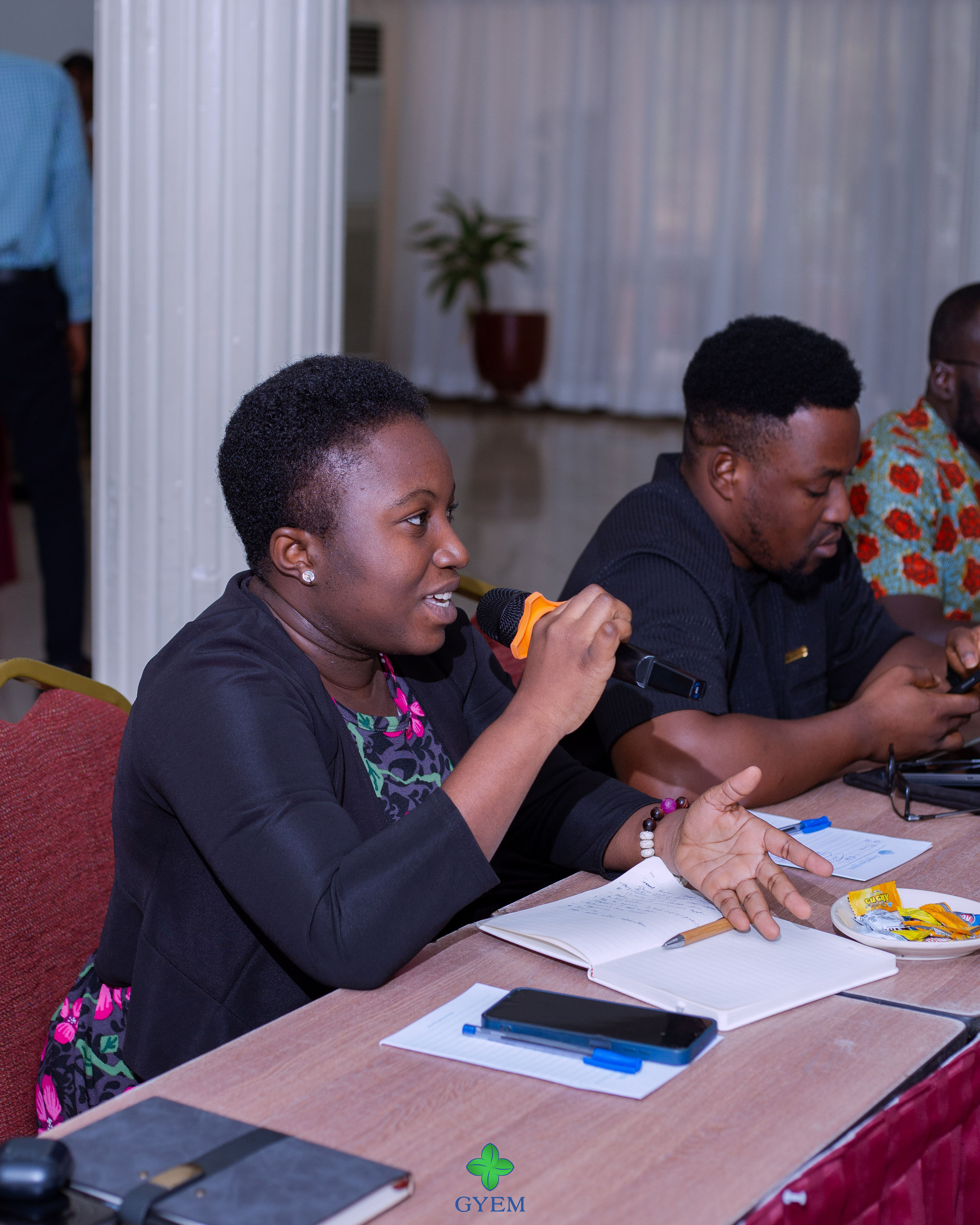
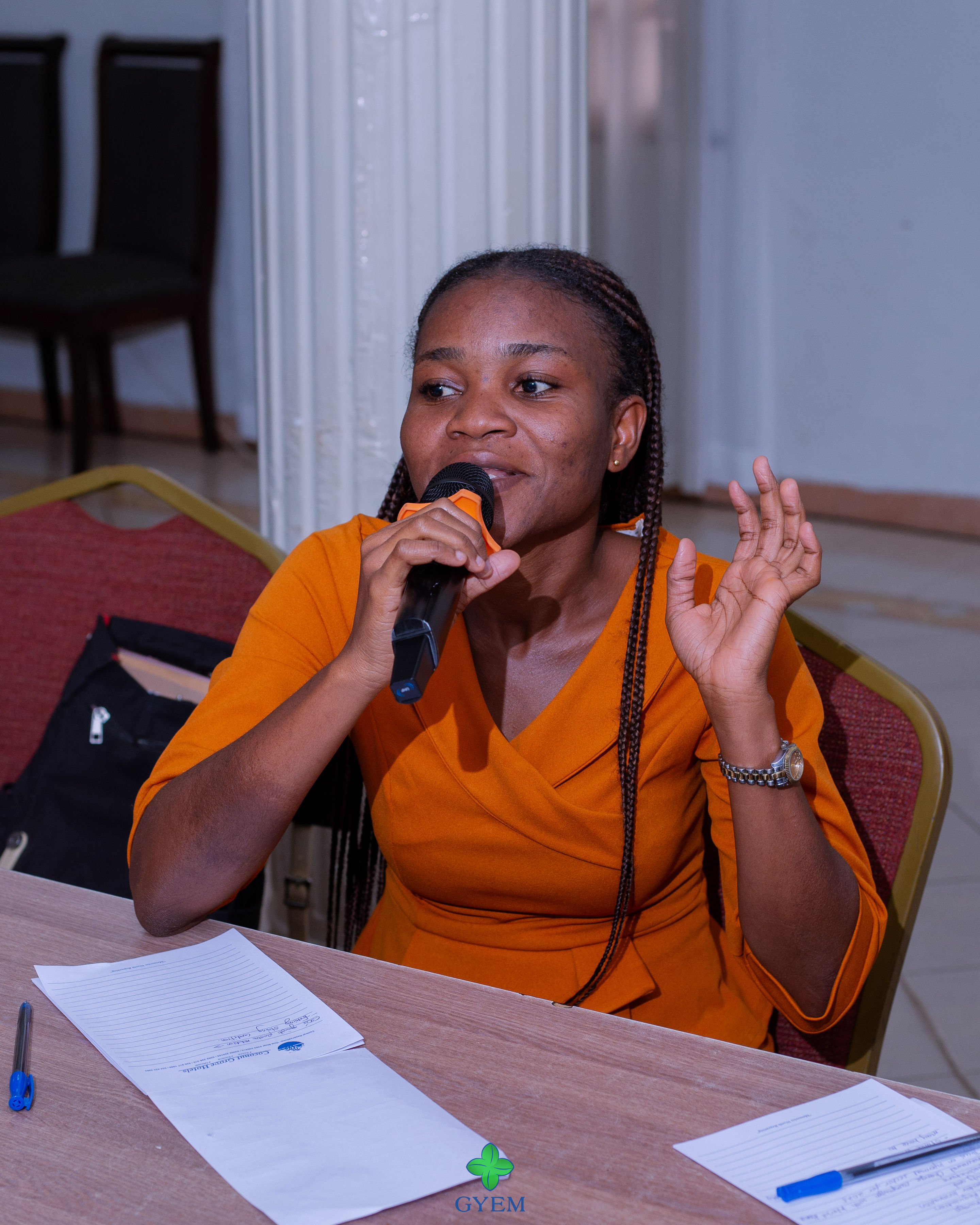
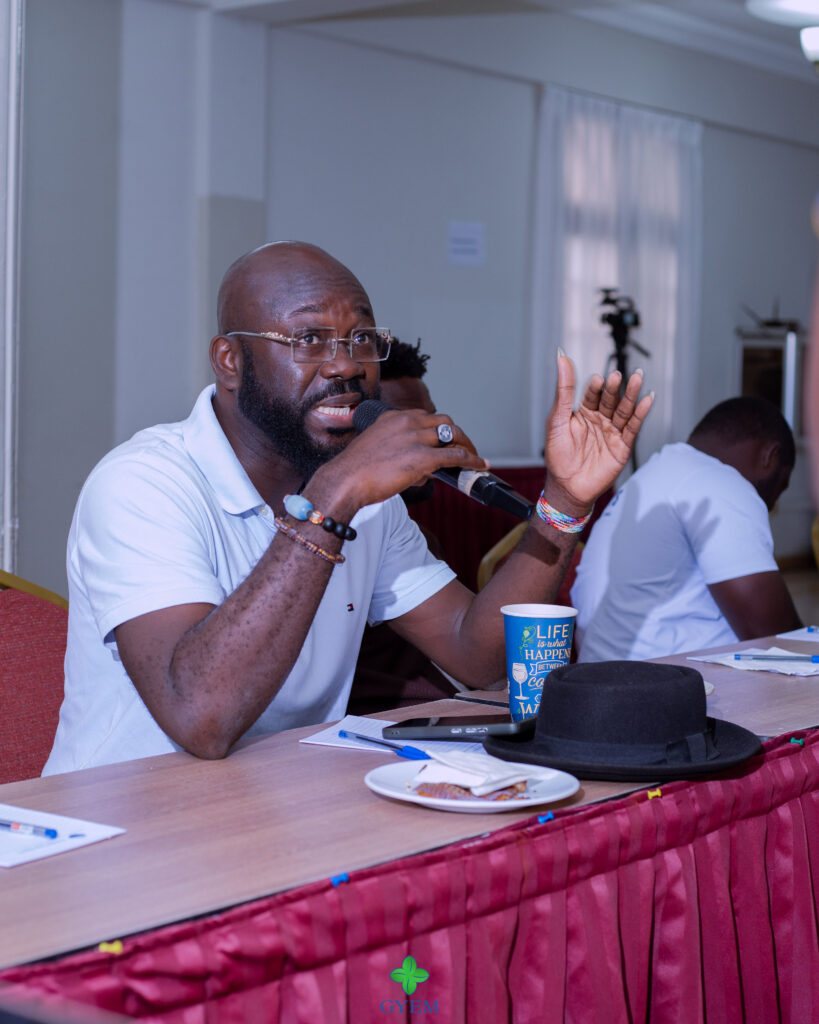
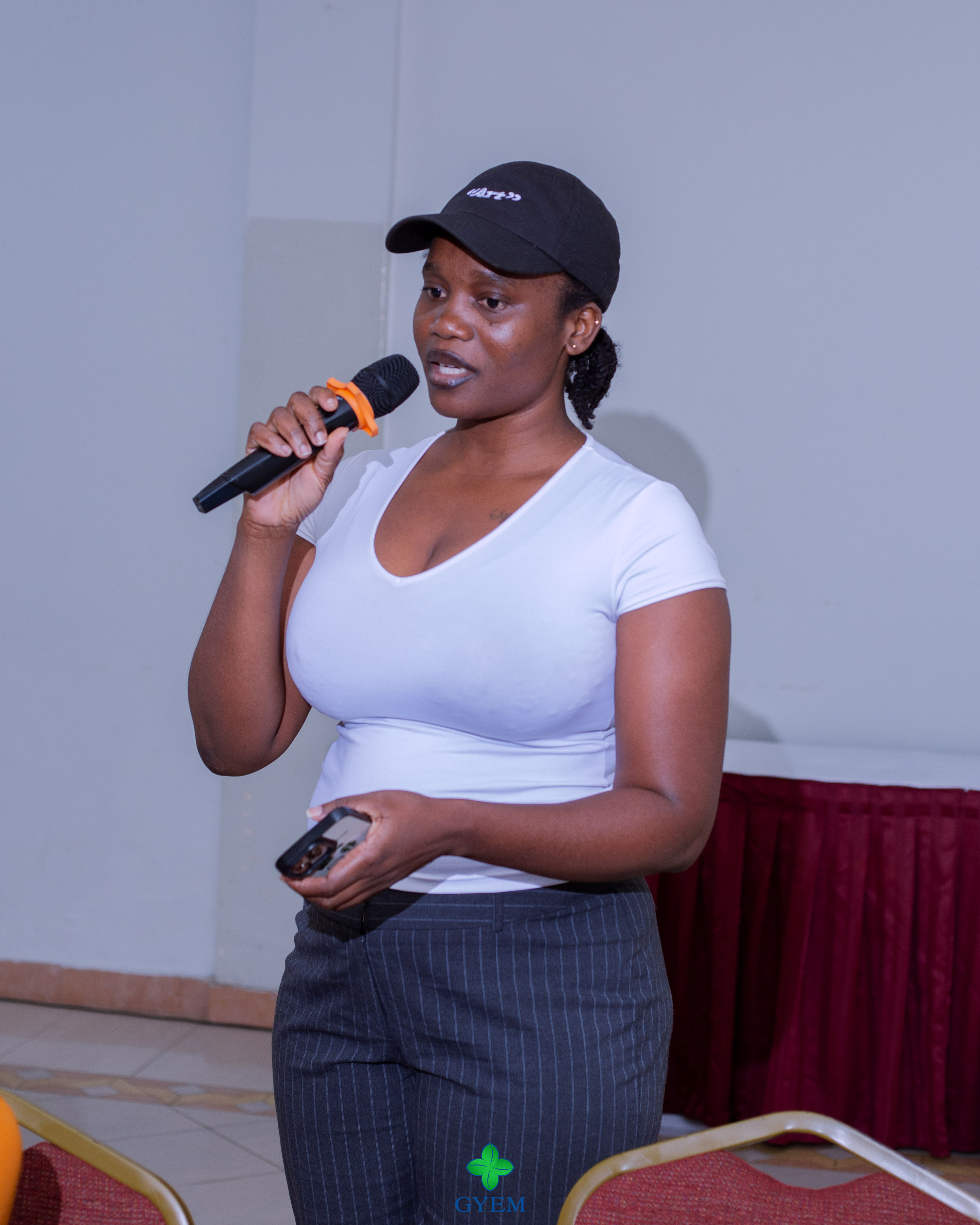
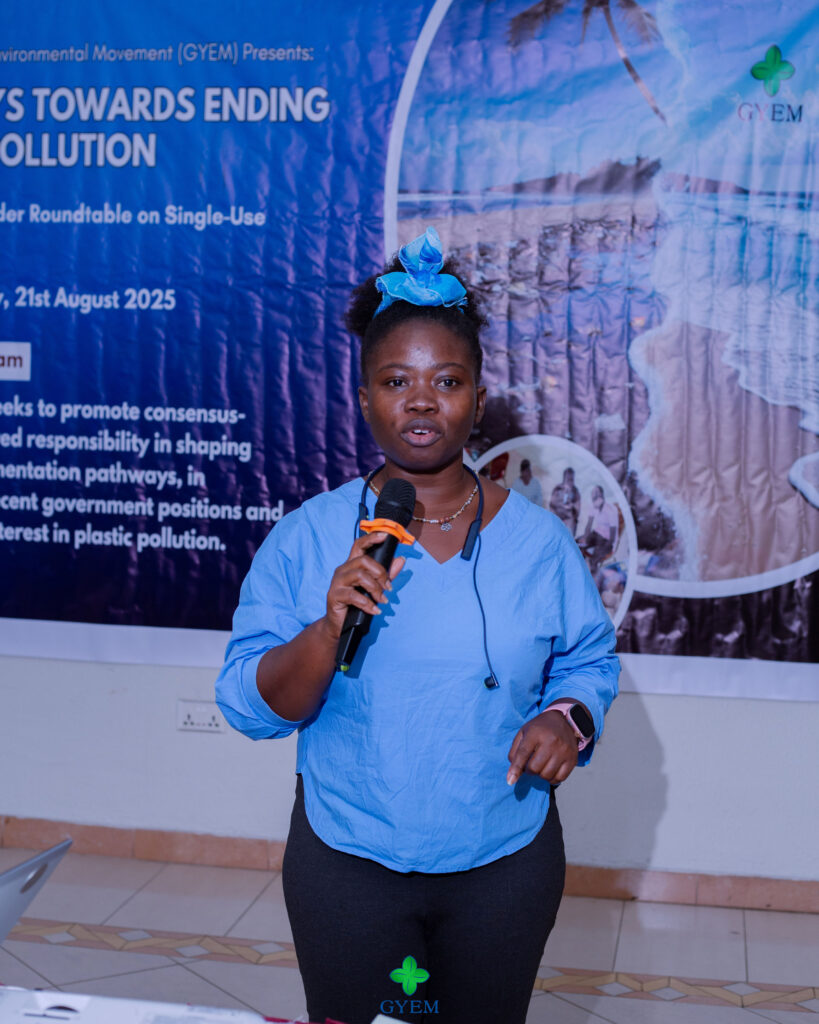
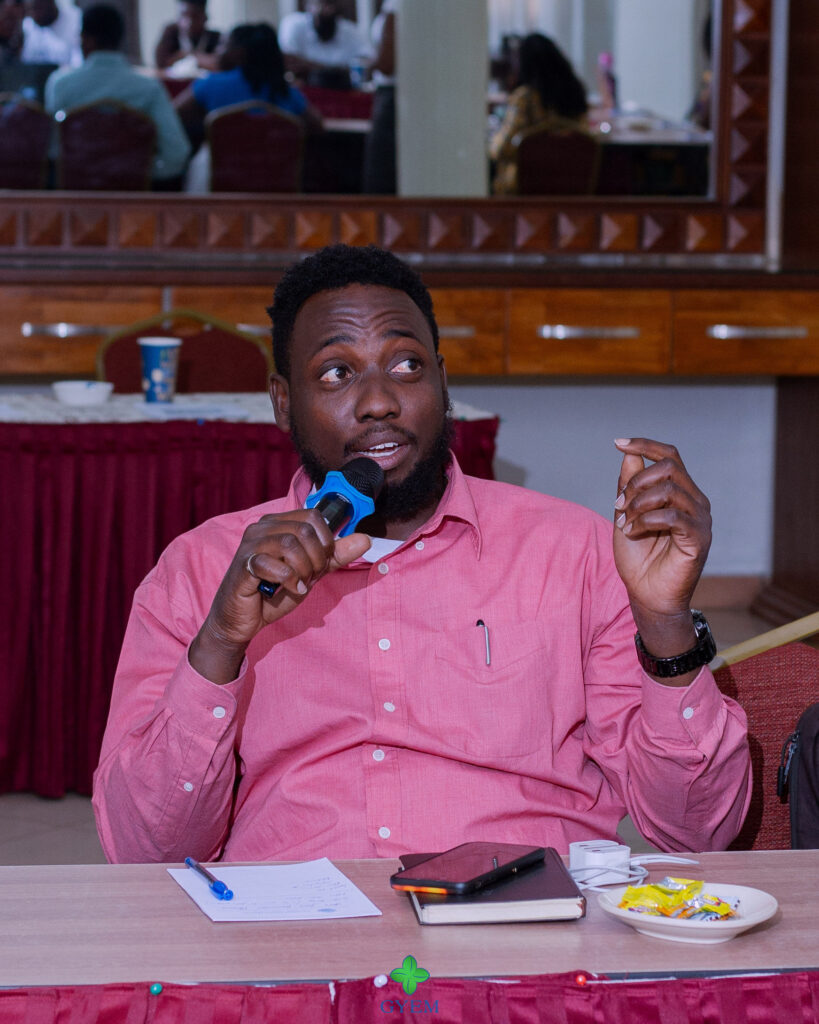
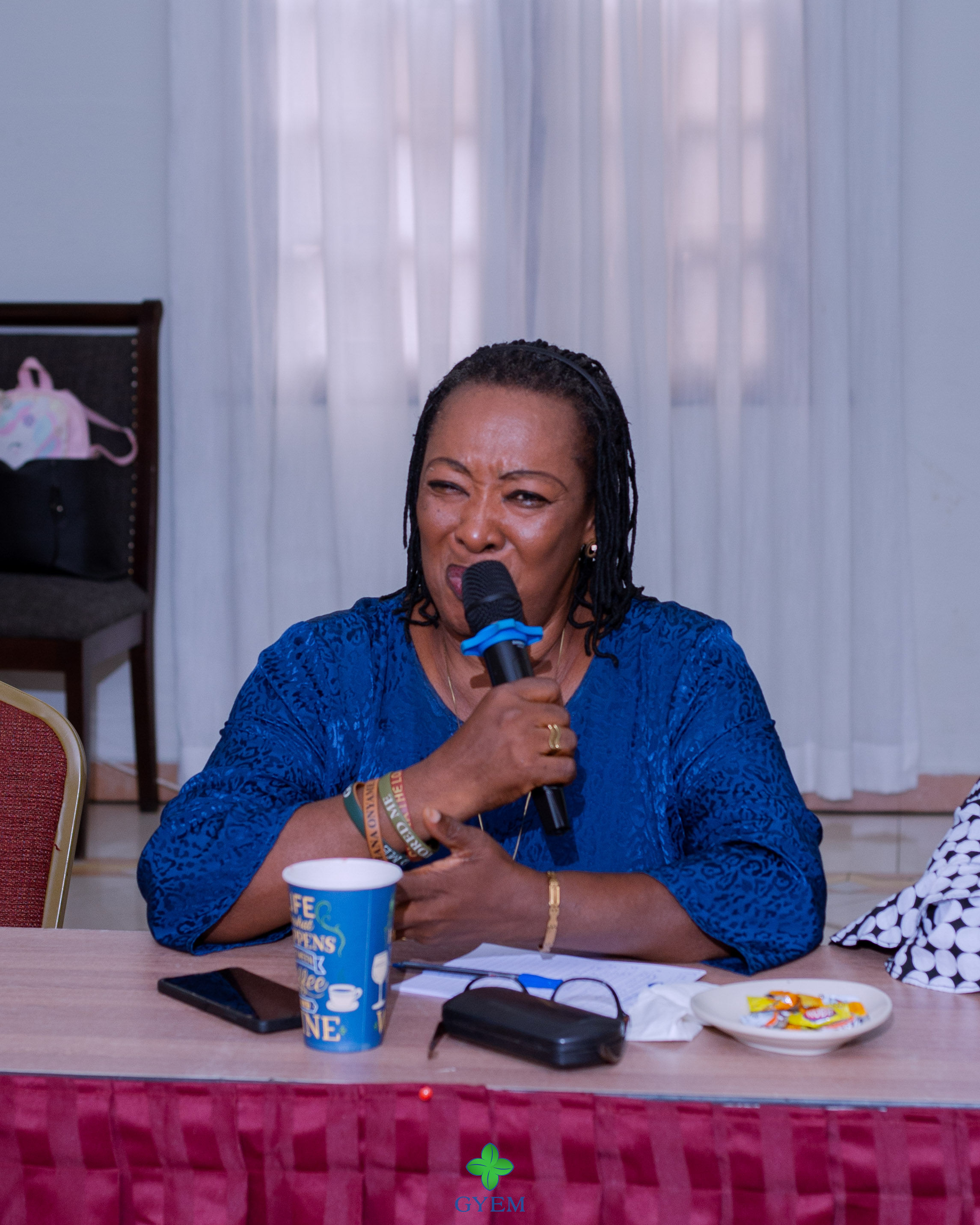
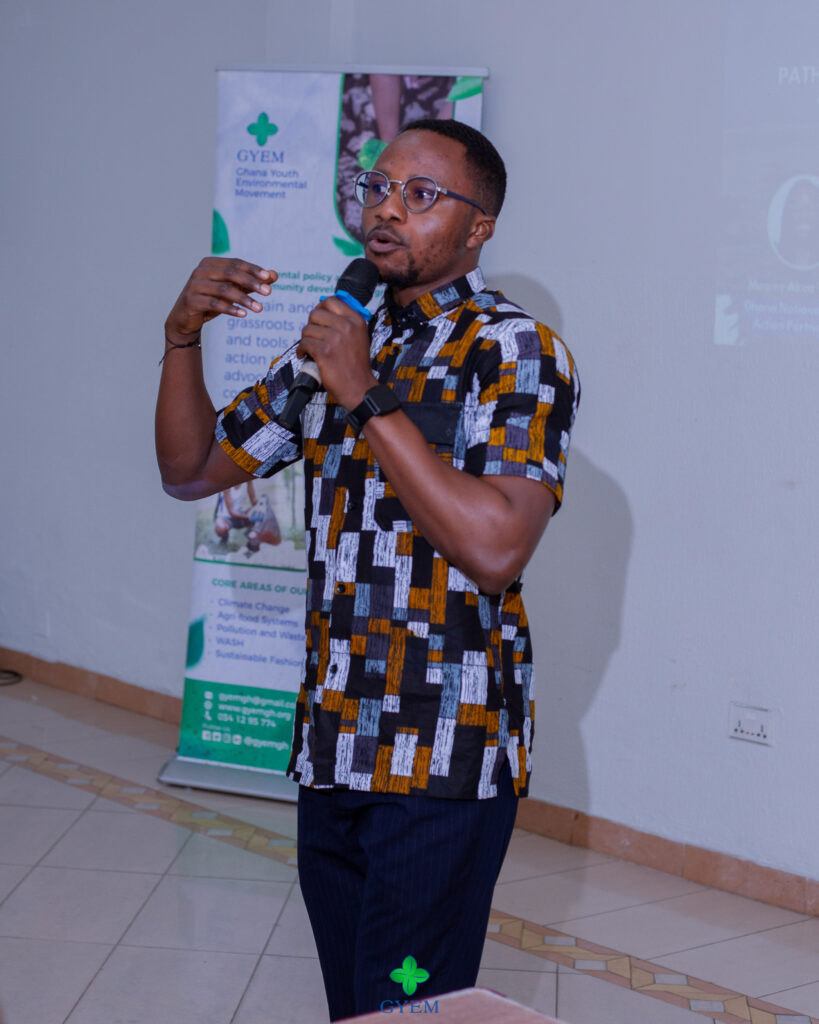
- The need for government agencies to take proper responsibility for city waste management.
- The need to develop innovative ways to monetize plastic waste collection in societies so that it is seen for what it truly is, as a resource rather than just a pollutant.
- The importance of durable and fundable alternatives to plastics for long-term success.
- Proposed designating Kaneshie Market as a model for plastic management and reduction initiatives.
Decisions and Agreements
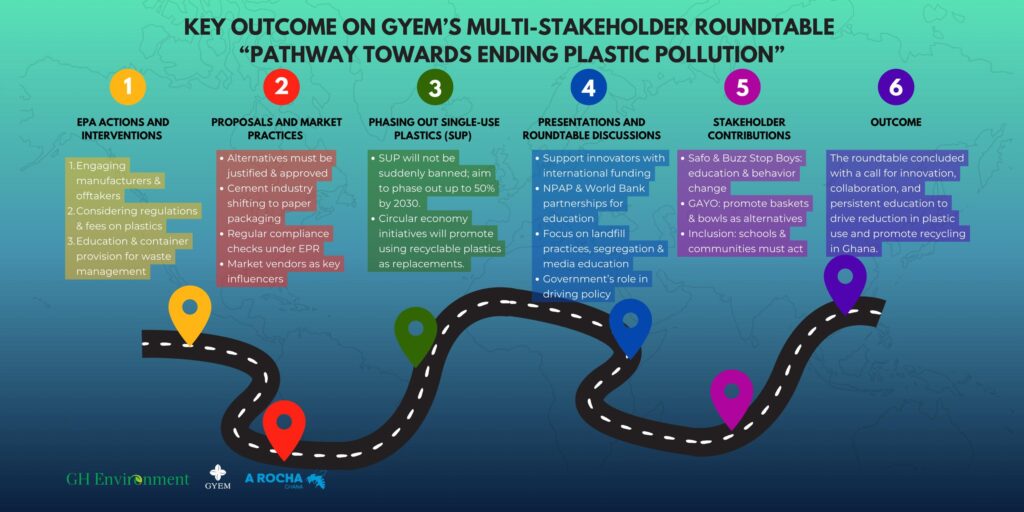
- EPA will maintain active ground-level interventions, engaging manufacturers and imposing regulations including fees for plastic consumption.
- Transparency in EPA’s approval process for alternative materials will be upheld; all proposals must be justified and officially stamped.
- Collaboration with Ghana National Plastic Action Partnership and World Bank on educational programs will continue.
- Commitment to support innovative alternatives such as baskets and bowls, ensuring inclusive participation from all sectors including market vendors and schools.
- Public education will be expanded through media channels and community outreach, emphasizing behavior change and proper segregation.
Closing the Session
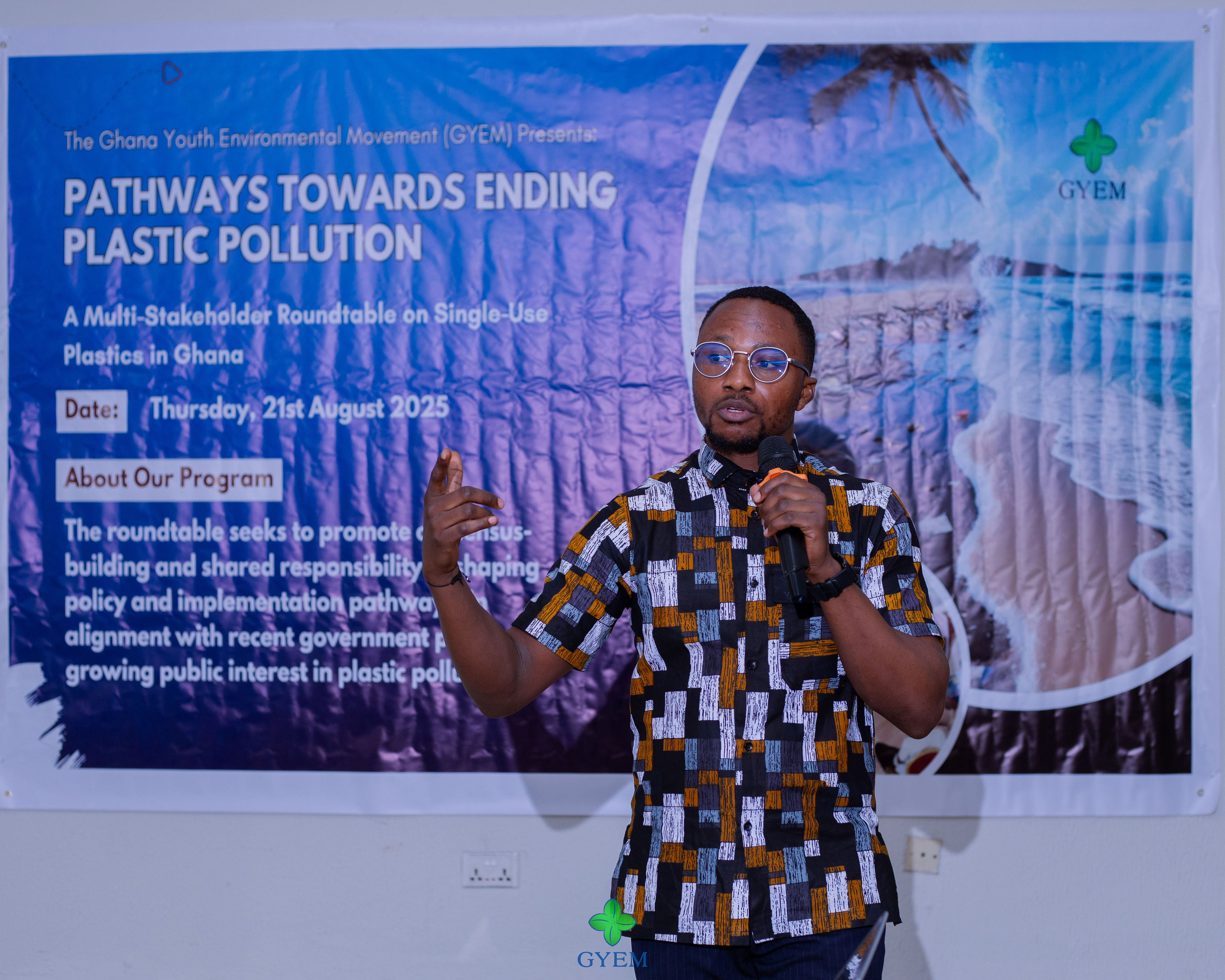
Our Campaign Manager, Mr. Samuel Boadu Duah reminded all that, banning plastics isn’t enough. The future lies in durable, fundable alternatives and a culture of collaboration.
Our Champions in the Room
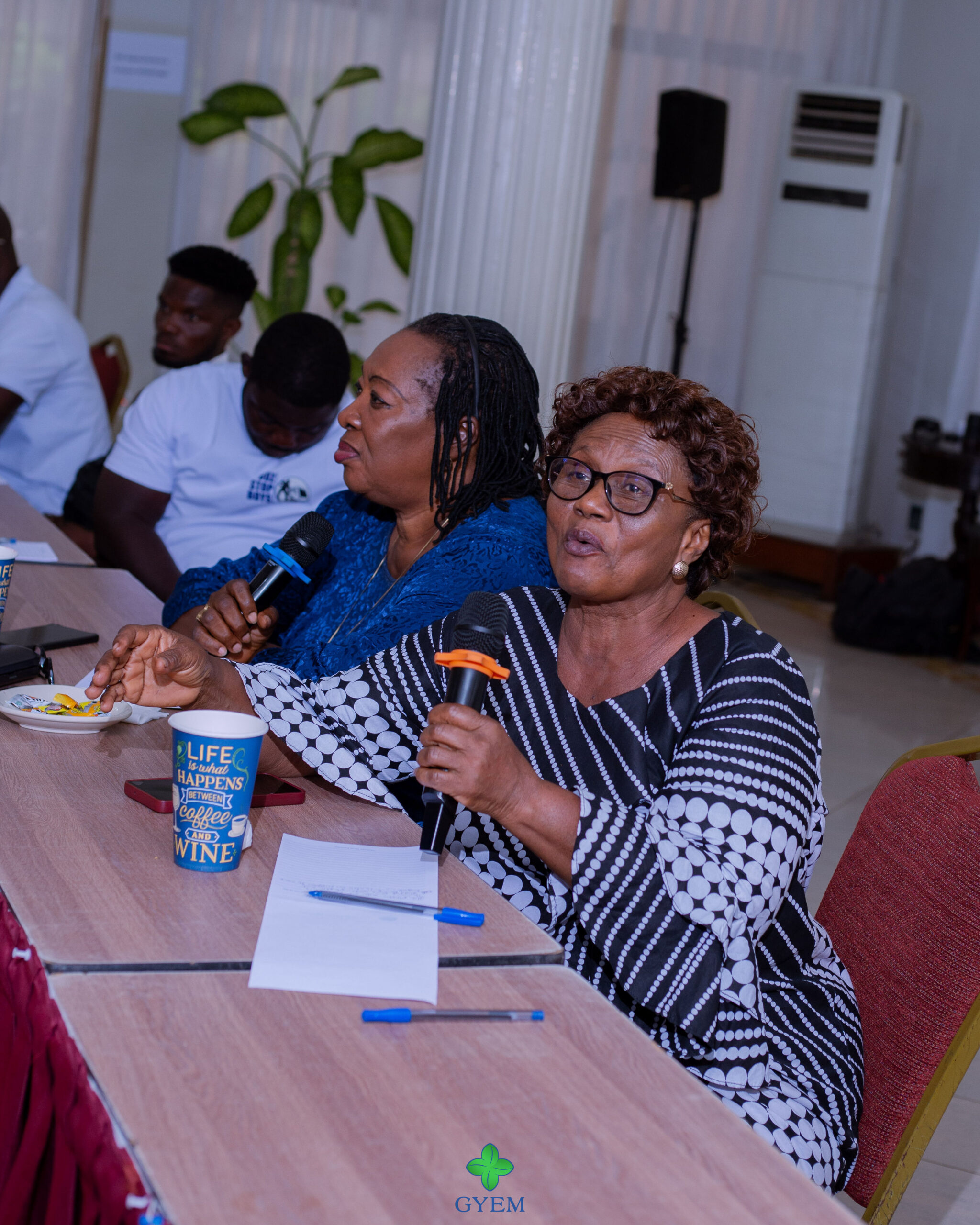
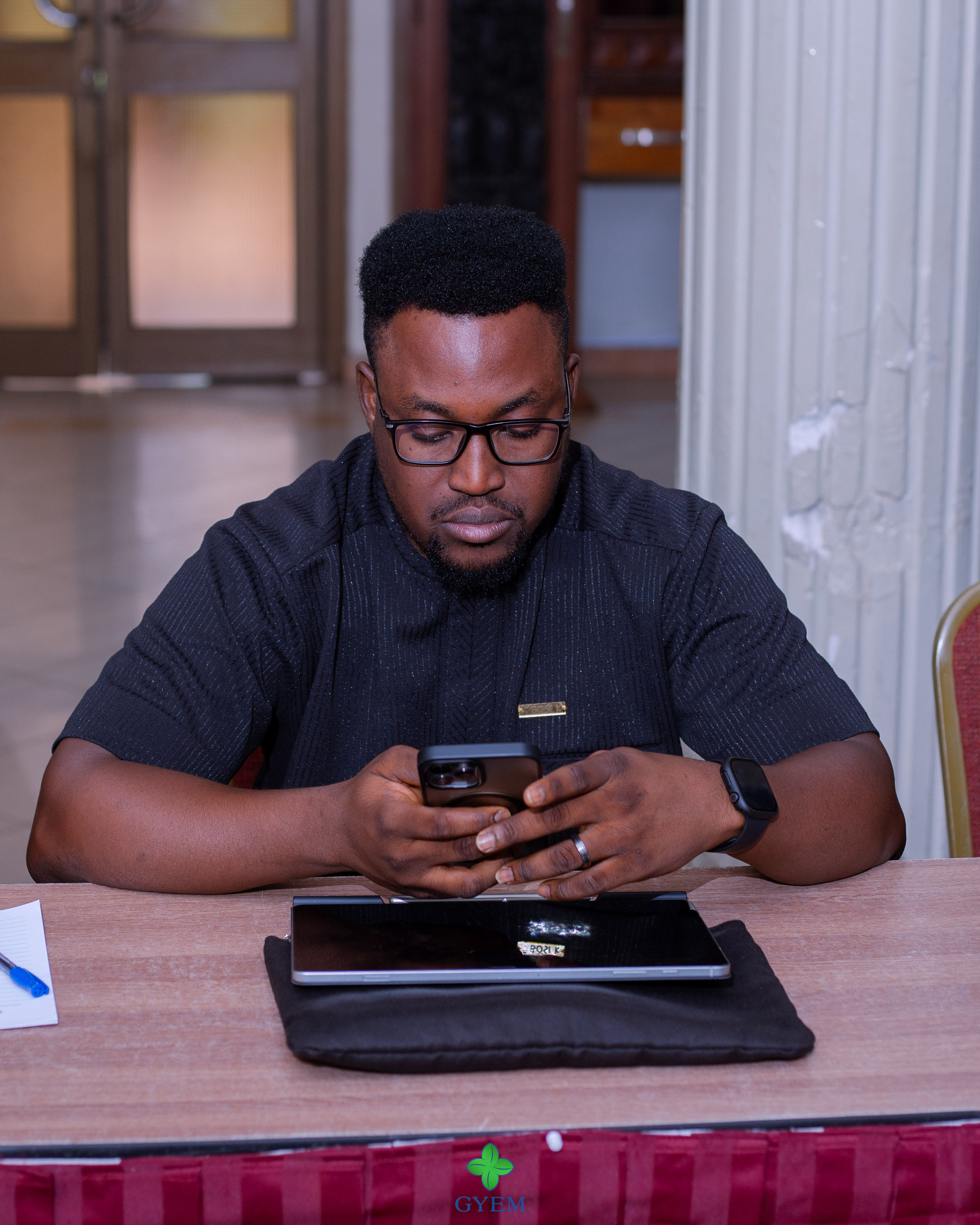
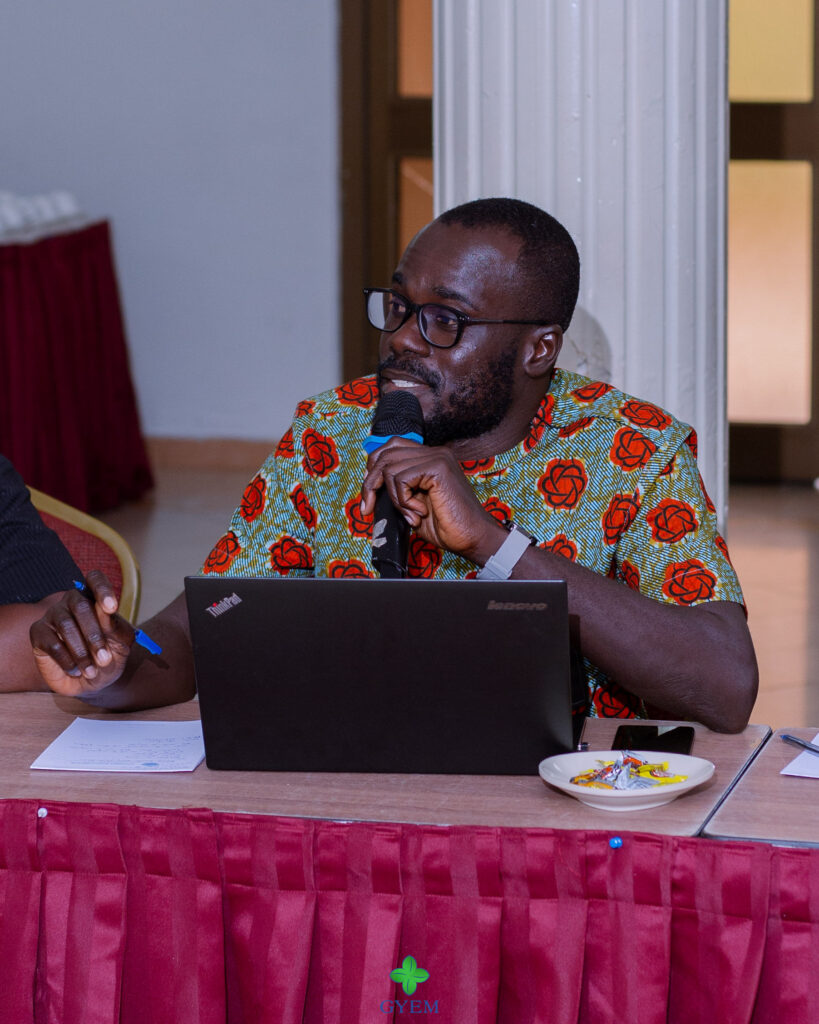
From Kaneshie Market Women Leaders to changemakers like Bismark Osiakwa Reusable Bags GH and Isaac Ofosu from Coliba Waste Management, the roundtable proved that when government, civil society, and youth collaborate, real change is possible.
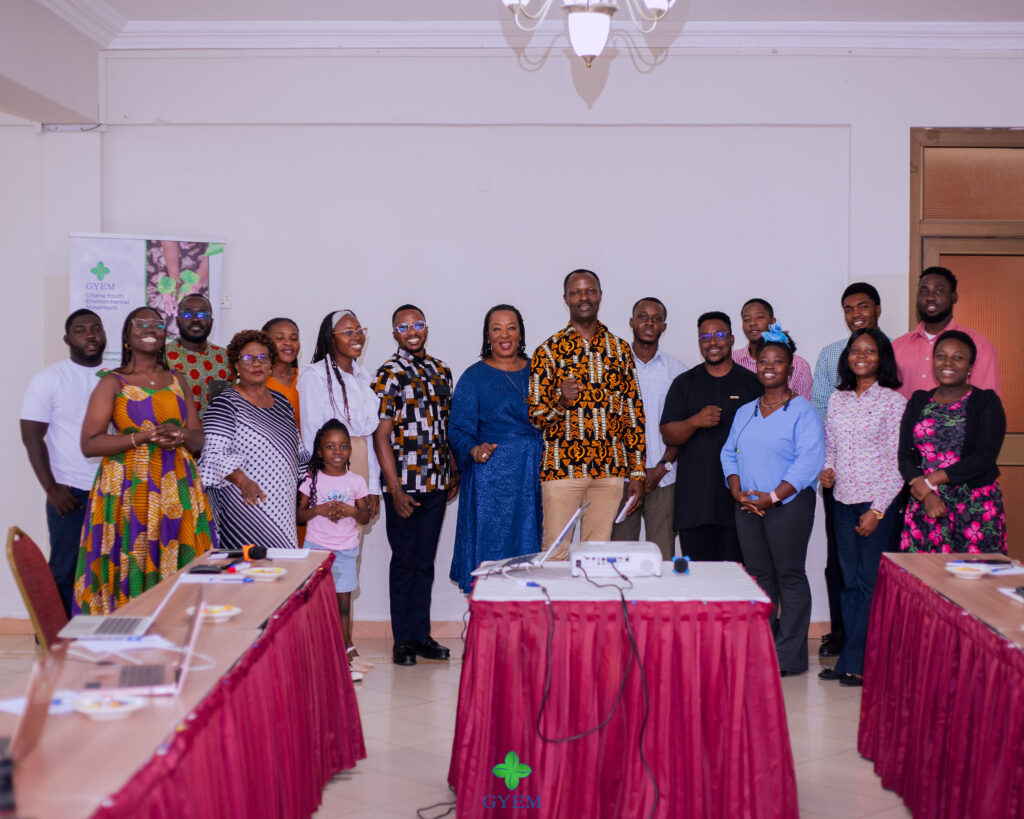
Together, we can end plastic pollution. Together, we can create a cleaner, sustainable Ghana.
What’s Next for Youth?
The consensus from the roundtable discussion was the formation of a coalition against SUPs. While the formation is in process, GYEM is brewing an innovative youth solution to address on-ground plastic waste.

